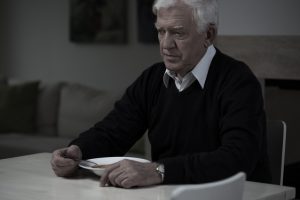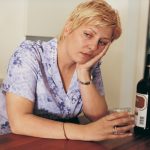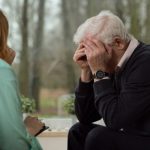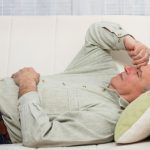 This weekend health news round-up focuses on depression and surrounding and related topics. Below you will find topics which discuss Parkinson’s disease and depression, Heart disease and depression, heart failure and depression, and yoga benefits for depression.
This weekend health news round-up focuses on depression and surrounding and related topics. Below you will find topics which discuss Parkinson’s disease and depression, Heart disease and depression, heart failure and depression, and yoga benefits for depression.
Parkinson’s disease risk may triple with depression: Study
Parkinson’s disease risk may triple with depression. Study author Albert C. Yang said, “Depression is linked in other studies to illnesses such as cancer and stroke. Our study suggests that depression may also be an independent risk factor for Parkinson’s disease.”
Advertisement
The researchers analyzed medical records of 4,634 people with depression and 18,544 people without depression over the course of 10 years. The researchers also looked at the risk of Parkinson’s disease after excluding those already diagnosed within two to five years of depression diagnosis.
During the follow-up period, 66 people with depression and 97 without depression were diagnosed with Parkinson’s disease. The researchers found that having depression triples the risk of developing Parkinson’s. Continue reading…
 Heart disease risk increase in middle-aged women due to depression
Heart disease risk increase in middle-aged women due to depression
A history of depression in middle-aged females increases the risk of heart disease, according to new findings. The research reiterates the notion that depression fuels heart problems.
The study tracked 1,100 women over the course of 10 years. The researchers found that depression is a significant risk factor for heart disease.
Heart disease is the leading cause of death among men and women. The CDC reports it is responsible for every one in four deaths. Continue reading…
 Depression in elderly difficult to treat, response to antidepressant therapy may vary considerably: Study
Depression in elderly difficult to treat, response to antidepressant therapy may vary considerably: Study
Antidepressant therapy may vary among the elderly with late-life depression, as it becomes more difficult to treat the older the individual is. The study, published in JAMA Psychiatry, examined longitudinal patterns of changes in depressive symptoms in those who were prescribed antidepressant therapy.
Lead author of the study Stephen F. Smagula said, “Elderly patients with late-life depression should get treated, that is the main take-home message from this study. You should get treated, and you should stay with it. Some of these patients take 12 weeks or more to fully respond. Late-life depression is often difficult to treat, and solo venlafaxine is just not going to cut it for a lot of the patients out there. But get treated, stay with it, and also explore adjunctive care or alternatives, as indicated.” Continue reading…
 Managing fatigue, depression in heart failure patients lowers hospitalization rates, increases life expectancy
Managing fatigue, depression in heart failure patients lowers hospitalization rates, increases life expectancy
Managing fatigue and depression in heart failure patients lowers hospitalization rates and increases life expectancy. The researchers reviewed data from 9,869 patients with a diagnosis of heart failure during a three-year period. Detailed records covering all variables, such as test results, medications, other conditions, etc., were available for 582 patients, enabling further analysis of depression and fatigue.
The researchers compared the effects of fatigue and depression on hospitalization in four groups of patients: fatigue-only, depression-only, both depression and fatigue, and those without fatigue or depression. Continue reading…
 Yoga may help combat depression, PTSD, and anxiety in seniors
Yoga may help combat depression, PTSD, and anxiety in seniors
Advertisement
Yoga may help combat depression, post-traumatic stress disorder (PTSD), and anxiety in seniors. Yoga continues to grow in popularity and for good reason, too. Yoga has been found to provide multiple benefits such as improving flexibility and strength along with reducing stress and anxiety.
For the study, researchers analyzed 13 literature reviews accounting for 185 articles. The researchers found that yoga has the potential to offer benefits to those suffering from PTSD, anxiety, and depression.
Coauthor Leslie Roach said, “Even though I do think yoga is, in general, incredibly beneficial, I also think there needs to be a whole lot more education about how to use yoga specifically to treat survivors of trauma in order to be the most effective and helpful. So as a standalone treatment right now, it’s just not viable. However, I think with more education, more research, and more experienced instructors, it will be.” Continue reading…
